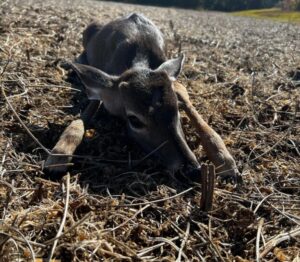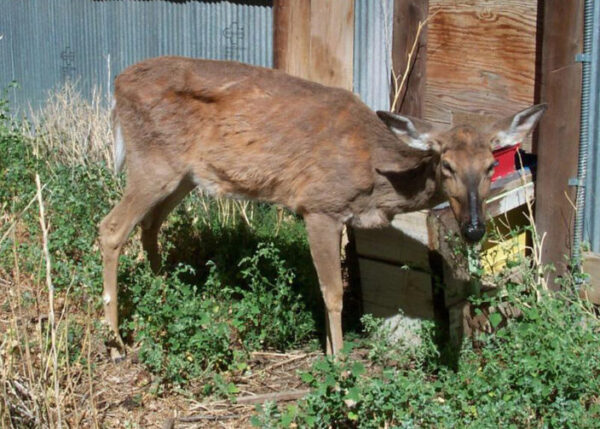State wildlife biologists have confirmed 24 cases of Chronic Wasting Disease (CWD) in whitetail deer, with 13 new cases since July 2023.
The first confirmed case in North Carolina was found in Yadkin County in 2021. The state immediately began efforts to isolate the disease, prohibiting imports of deer or deer parts from areas with infections. All brain and nervous system tissue must be removed before an animal from an infected state can be brought into the state.
Officials were confident the state would see more CWD after the past season.
“These additional cases are not entirely unexpected,” said Wildlife Management Division Chief Brad Howard. “After the initial detection in Yadkin County we activated our response plan. It called for greatly increasing the number of deer tested to get a clear picture of where CWD occurs in our state and how many deer are infected. I’m actually encouraged by how few CWD-positive deer we’ve found, given how many deer we’ve tested.”
Since CWD cannot be observed in most deer, hunter sampling is the most effective way tot rack CWD, Howard said. The Wildlife Resources Commission (WRC) reported 36,146 samples voluntarily submitted by hunters in North Carolina during the season ending Jan 1. The WRC has received 98 percent of the test results from those samples.
Two suspected cases from last fall – one in Johnston County and another in Franklin—were false positive, Howard said. Standard protocol calls for all samples to be double-checked by the National Veterinary Services Lab, he said. The backup test showed “light staining” that initially indicated CWD.
CWD is a variety of spongiform encephalitis. It is highly contagious to deer and other cervid species. CWD is caused by abnormal proteins, called prions, that slowly spread through a deer’s nervous system, eventually causing spongy holes in the brain that lead to death. The disease is spread between deer through direct contact and environmental contamination from infected saliva, urine and feces.
CWD can be unknowingly spread to new areas by the transportation of hunter-harvested deer carcasses or carcass parts.There is no vaccine, treatment or cure. There is no USDA-approved live test for CWD, so effective surveillance methods require the testing of dead deer, primarily hunter harvests.
CWD is similar to so-called “mad cow disease,” but has not been proven to spread to humans. The disease can, however, decimate deer herds.
The 13 new cases came from counties where infected deer had previously been harvested.
No infected deer have been discovered in Columbus, Bladen, Brunswick or Pender counties. Bladen and Robeson are in the CWD surveillance area due to an infected deer taken by a hunter in Cumberland County. A CWD surveillance area is also in force in the western part of the state, where CWD first appeared in 2021.
For more information on Chronic Wasting Disease, go to ncwidlife.org.








